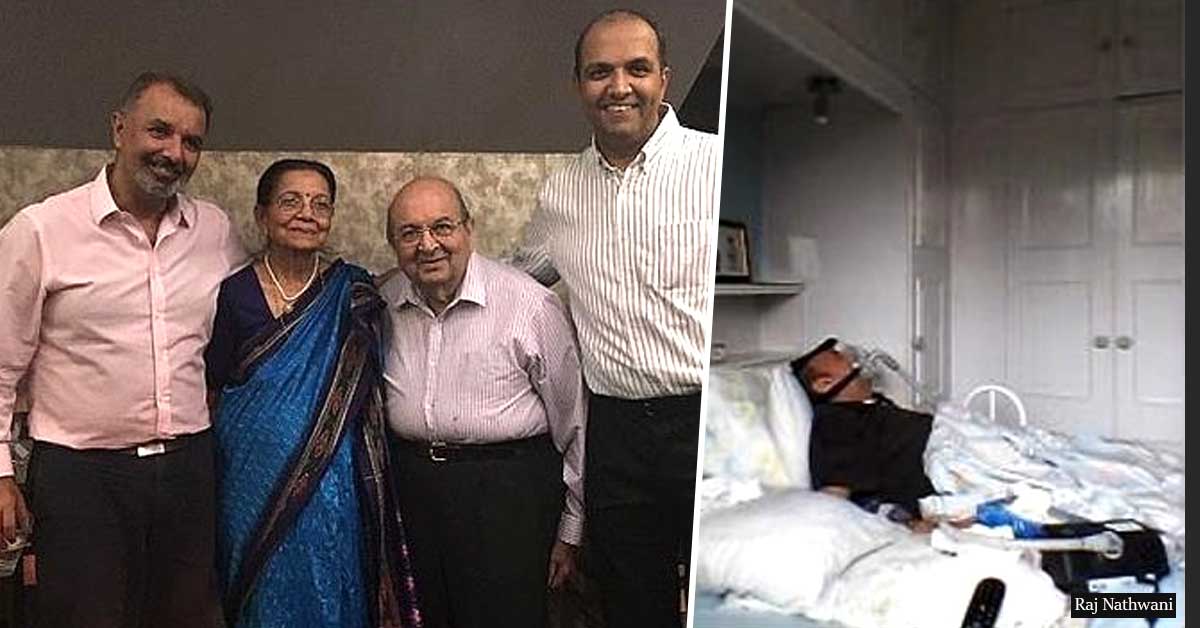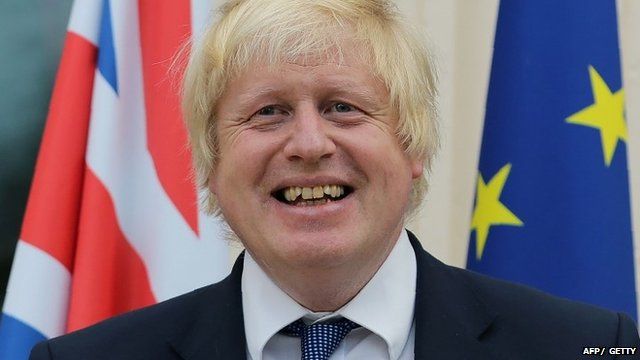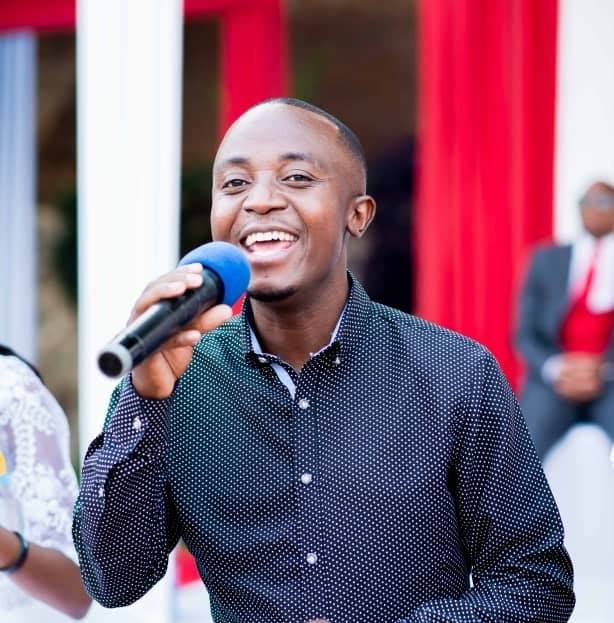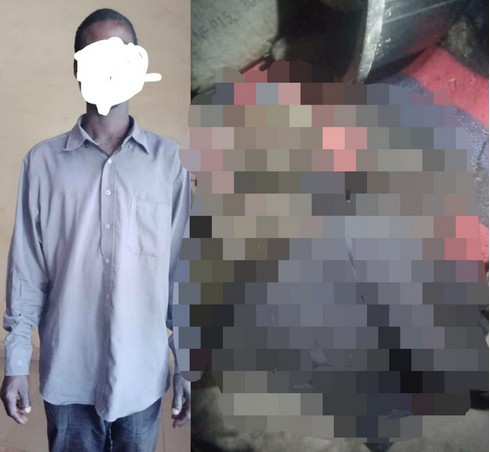London, United Kingdom: After returning from the hospital 81-year-old Suryakant “Suri” Nathwani took his son’s hand and asked him to be left to die alone.
His son, Raj Nathwani, 55, said:
“He said, ‘Please promise me one thing: If I’m going to go, I’m going to go here. Do not take me back there,’”
Suri had signed up for a COVID-19 vaccine test that has never been tried on people.
Raj was not willing to let his father die, but he knew his chances of survival were small.
Since January, Raj had been informing himself on everything there is to know about the virus.
“I’m not a betting man, but if I was… [I would] definitely put my money on him not making it,” Suri’s family doctor, general practitioner Dr. Bharat Thacker, told CNN.
COVID-19 has so far claimed the lives of more than 265,000 people worldwide.
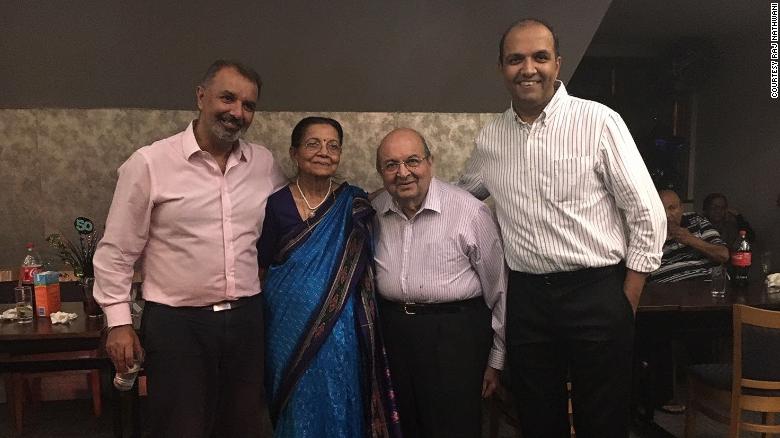
However, official statistics largely consist of people who passed away in ICU or other hospital departments.
Many people have died in their own homes or care homes and are often not properly reported.
As he helped his father get to bed at Watford General Hospital in London, Raj, who works for an advertising company, could not stop worrying about his father’s fate.
But despite all odds, Raj did not give up on him:
“You’re not going to die. We’re going to look after you here,” he told his dad.
Little did he expect, a miracle would happen.
Raj, who had recovered from a heart attack last November, had prepared himself for the crisis weeks before the United Kingdom was put on lockdown on March 23.
He had been self-isolating together with his 80-year-old mother, and his father who had also been suffering from chronic obstructive pulmonary disease (COPD) since March 11, because the whole family was considered at risk from COVID-19.
However, father Suri’s condition started getting worse on March 25. His scheduled daily 10-minute walk outside their home became a 45-minute long struggle. His lungs were starting to weaken. He started losing his energy and even though he did not have a high temperature or a bad cough, Raj started thinking that his father was infected with coronavirus.
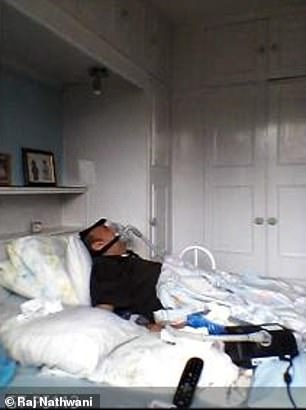
Little did the family know, liquid was starting to enter Suri’s lungs.
This was established after paramedics arrived at their home due to Suri’s troubled breathing.
Suri was brought to the hospital and doctors called Raj a little bit later. He was told that they were 95% certain his father had COVID-19 but wanted to send him back home regardless.
Raj said that a medical expert told him if his father’s condition worsened they would not put him on a ventilator “because he felt his lungs, with … COPD, would not be able to handle it.”
According to CNN, Suri’s discharge sheet includes a “do not resuscitate” (DNR) order that was made when he was admitted.
Ventilators could save lives, but medical experts warn that being admitted into ICU does not guarantee a patient’s recovery.
Raj said he was left with two choices:
“Do I keep him there and risk never seeing him again, or do I bring him home and spend all my energy making it comfortable for him?”
He chose to take him home, even though he risked infecting the other members of his family.
With little understanding on how to administer palliative care, Raj had no choice but to do his own research. He made a Google spreadsheet to help monitor his father’s temperature, oxygen readings, and blood pressure. In order to do so he used a thermometer, a pulse oximeter, and a blood pressure monitor.
The family started taking turns in monitoring Suri.
To get additional advice, Raj turned to a family friend who works as a general practice doctor, who advised him on his father’s hydration and kept track of his vital signs on the Google spreadsheet.
According to Raj, the key in treating his father might have been the fact the family was already in possession of a CPAP device which was being used for Suri’s sleep apnea.
“When Dad’s breathing got worse, I was advised to use the machine,” Raj said, noting that the machine was being used for up to 16 hours per as advised by the doctor.
The next day Dr. Thacker called saying that Suri’s COVID-19 test had come out positive. At this time many GP’s in the UK were having difficulties in getting PPE such as gloves and gowns.
Without personal protective equipment, it was not safe for Thacker to visit the family at home.
“If I went there and I got it, then not only are my family at risk, but so are my patients if I returned to the surgery,” he told CNN.
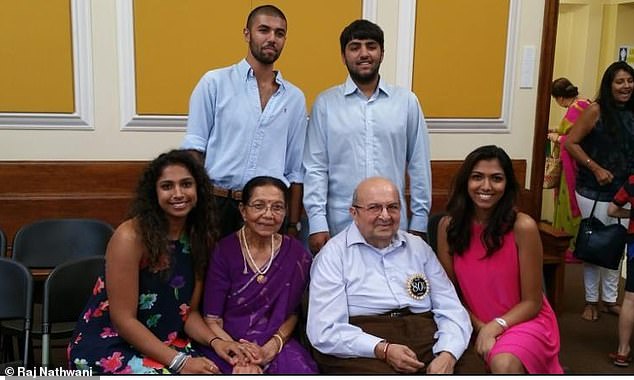
Dr. Thacker decided to take a look at the spreadsheet and based on what he saw, he recommended an antibiotic for a secondary lung infection the father had developed.
In addition, he advised that Suri should be put to lie on his stomach for a few hours each day – which is also known as prone positioning. Medical experts have concluded that making the sickest COVID-19 patients lie on their stomachs can help increase the amount of oxygen they receive.
Understanding the severity of the situation, Dr. Thacker said a DNR notice was sent to the family’s address so that medical workers who were called there knew they should not resuscitate him, because “the outcome is going to be rather poor.”
Fortunately, it did not come to that. Thanks to his son’s care, Suri slowly started recovering. Raj says he understood that his father was on the path to recovery when he started nagging at him as usual.
“He began whingeing and said his tea was badly made. He then asked for some pizza and chips,” Raj said.
As his condition improved, Suri started walking around his garden with the help of a walker.
“We truly had an action and ‘go-to’ team on tap that I trusted,” Raj said, adding he did not have to rely on “Dr. Google,” because he had true doctors around who helped him.
Raj appreciates the fact that he and his dad were in a more privileged position than many other people in the United Kingdom.
Dr. Thacker, who has had a few patients pass away from COVID-19, says he cannot pinpoint exactly how things worked out for Suri.
“Whether it was the family caring for him, or the available bio-data that made the difference — we don’t know,” Dr. Thacker said. “
Perhaps it was just luck and not quite his time to go,” he added.
In the worst times, sometimes a strong family and a little luck are all that is needed to keep a loved one alive.

